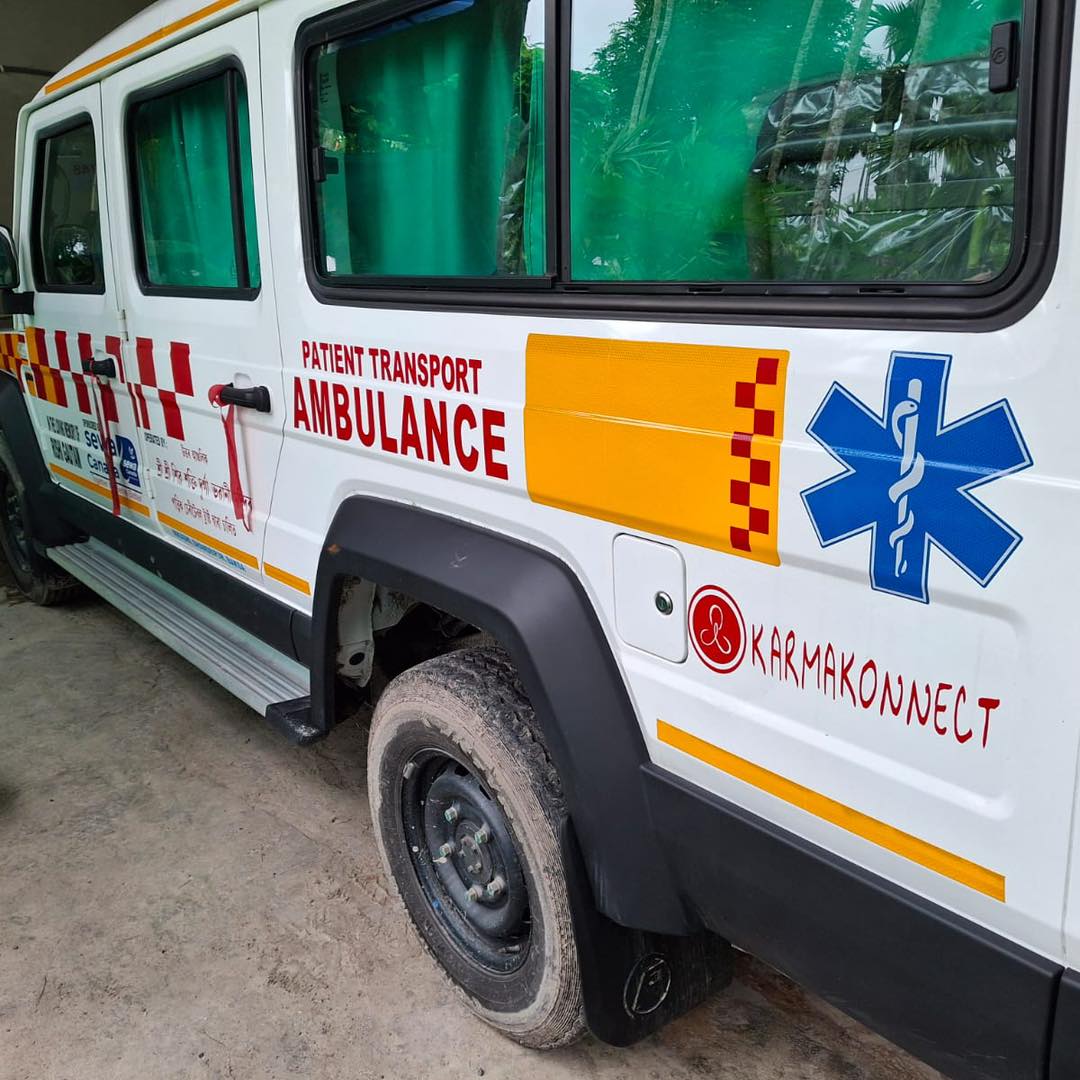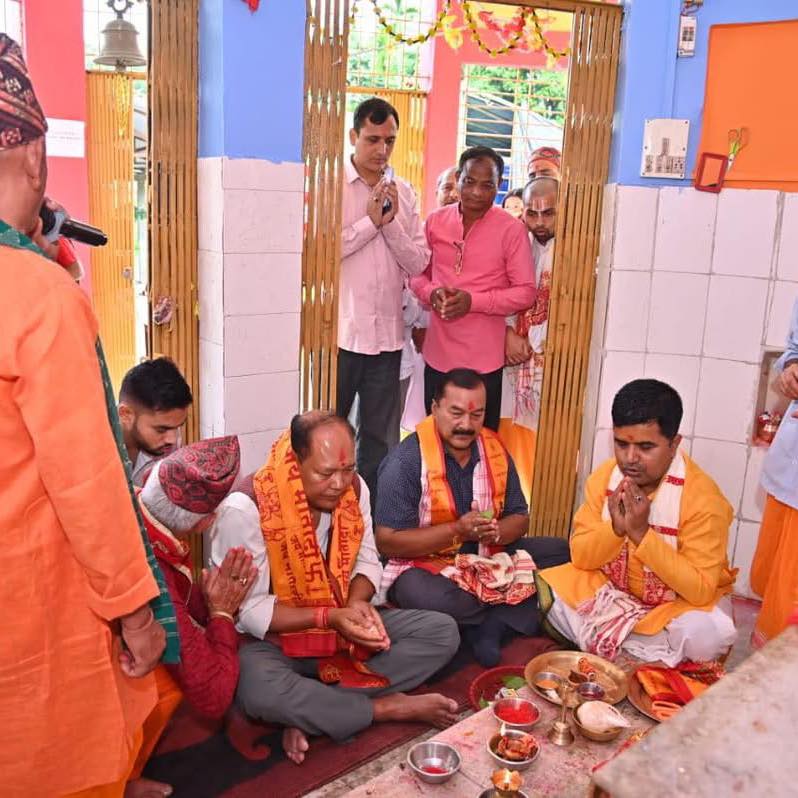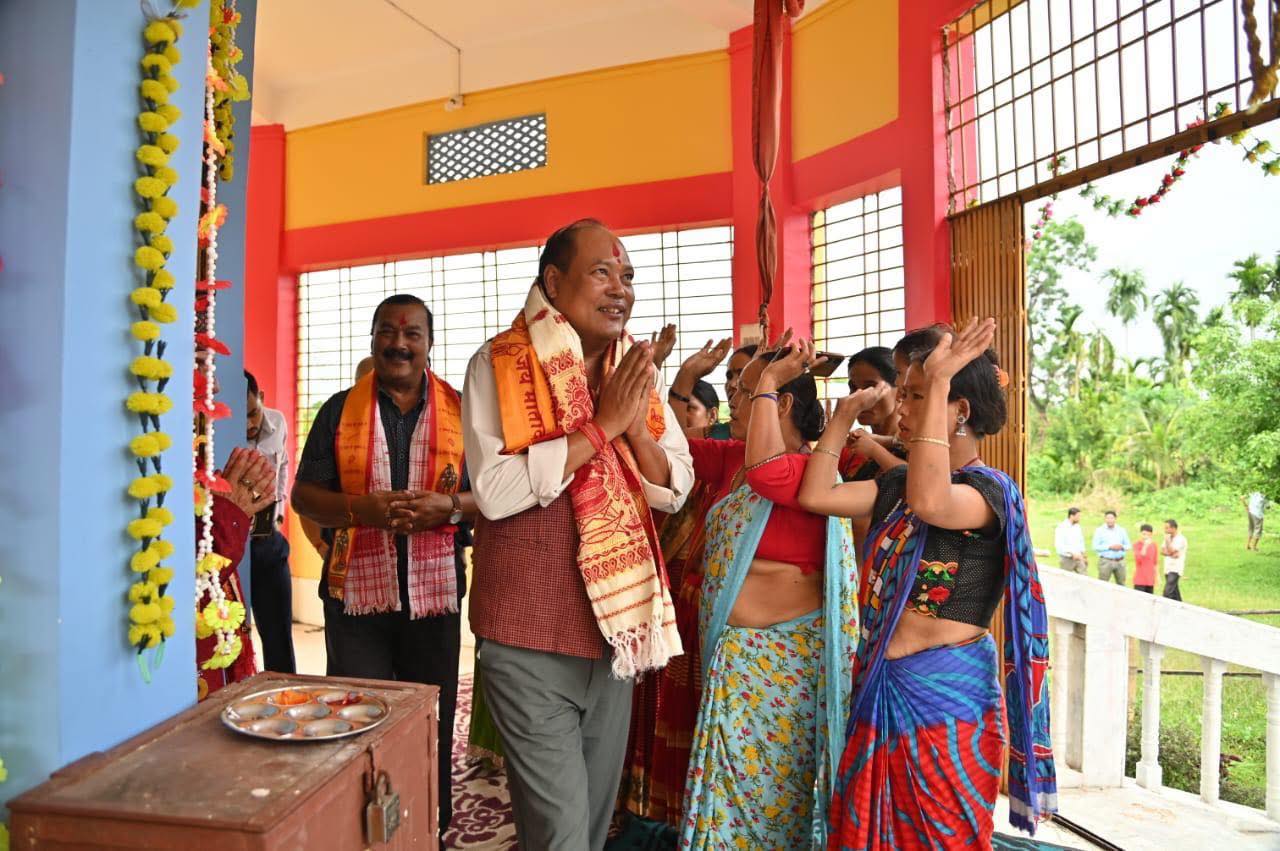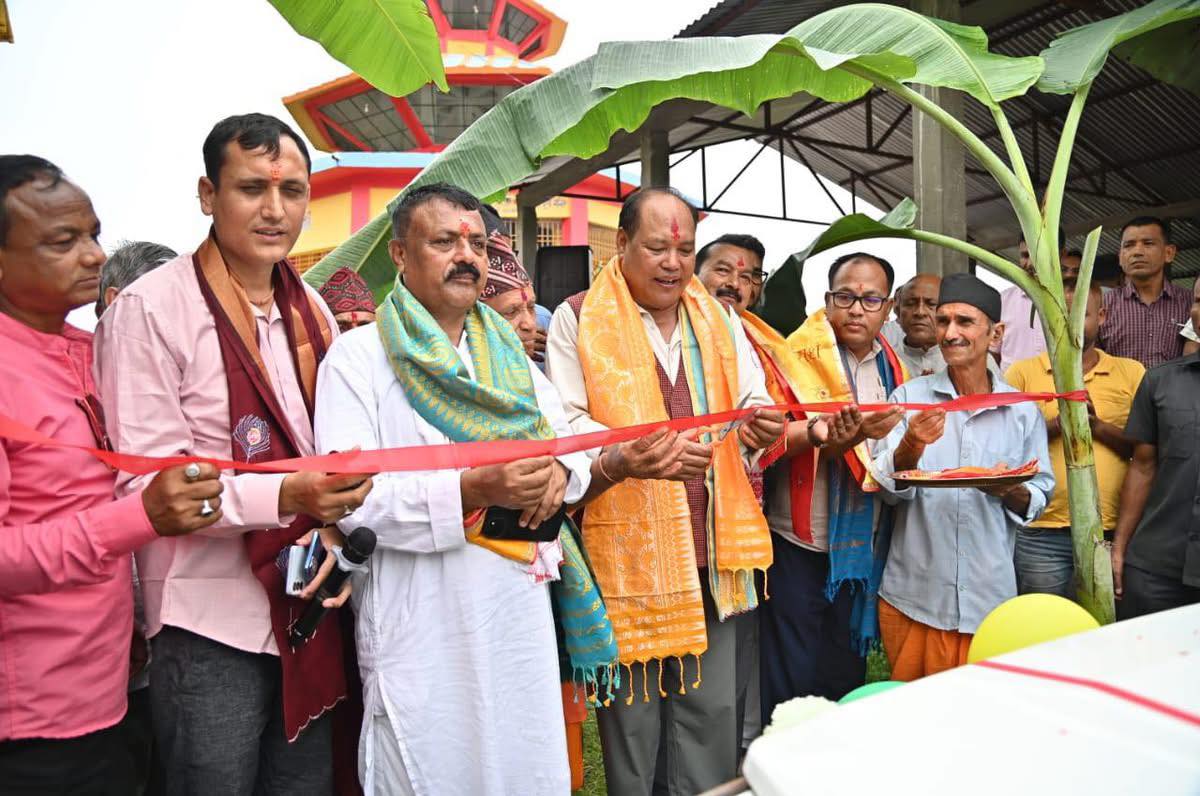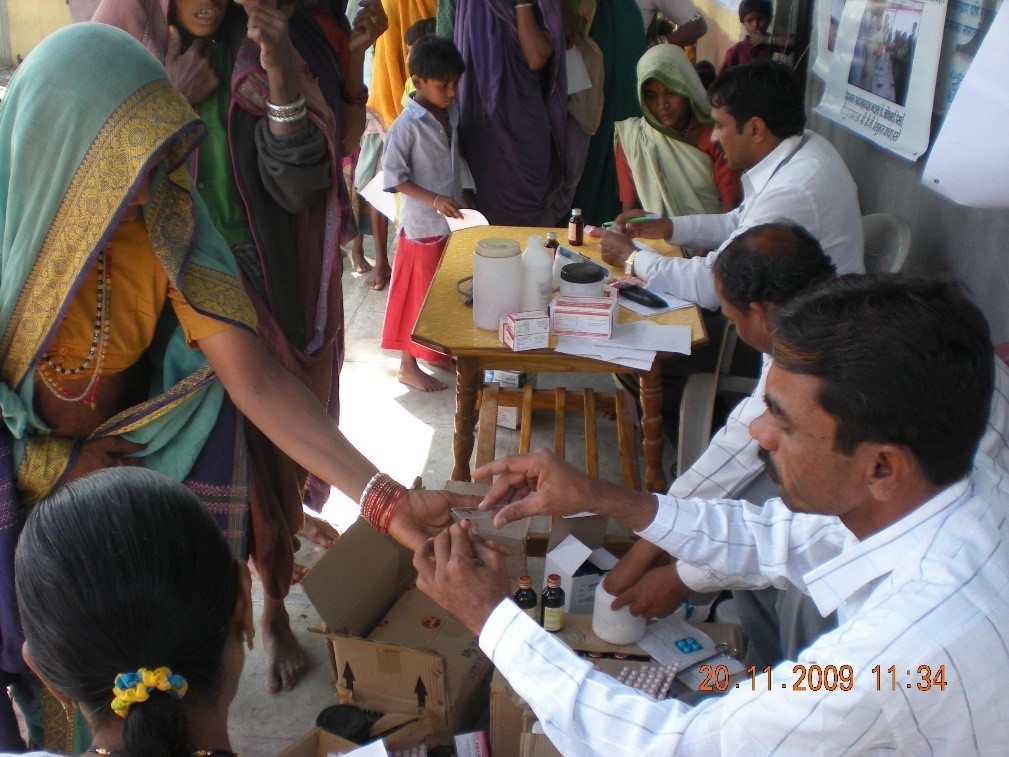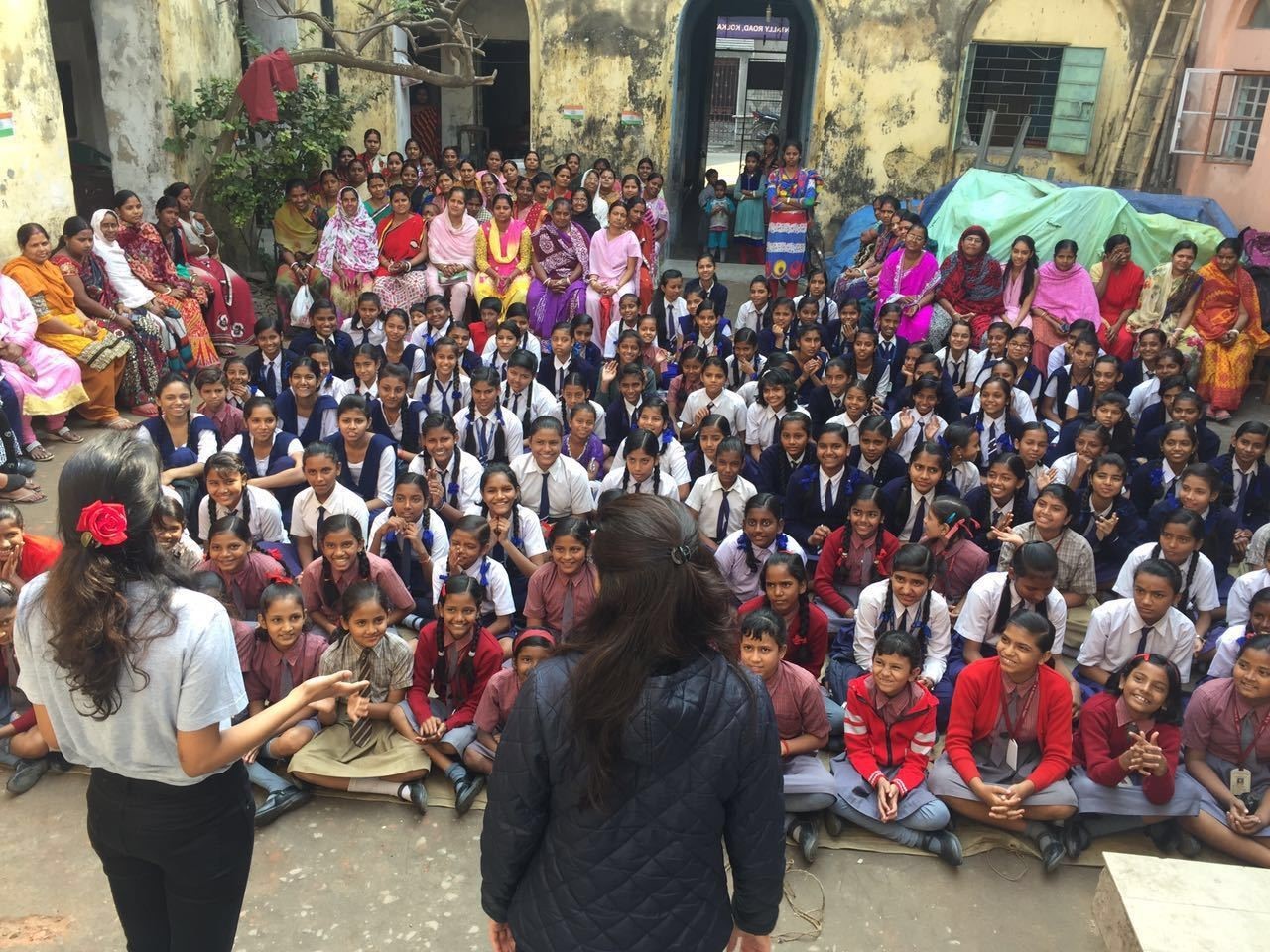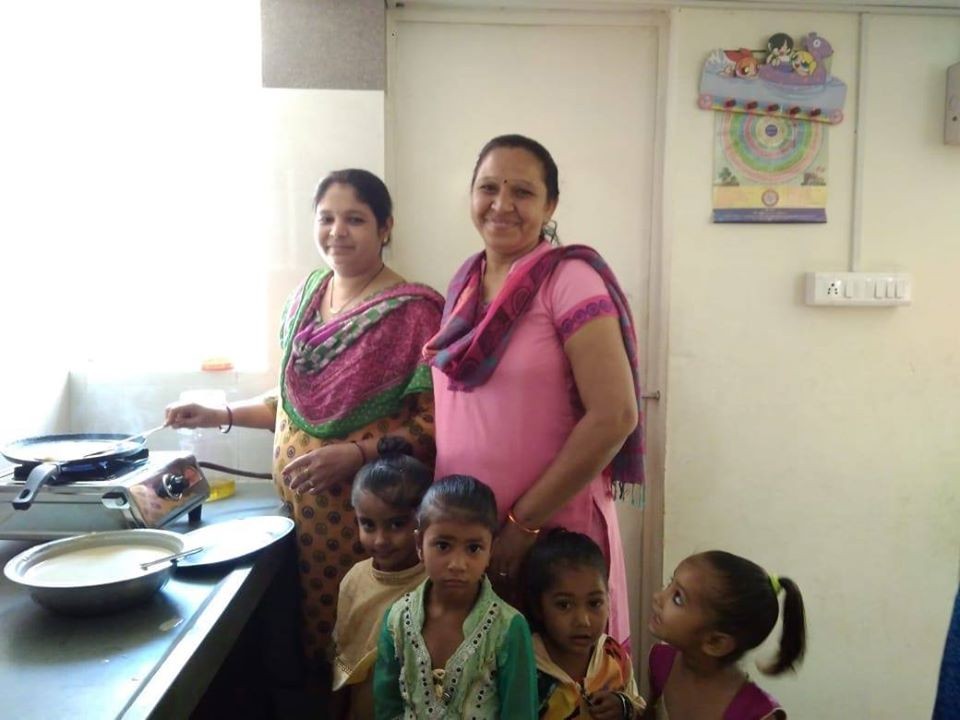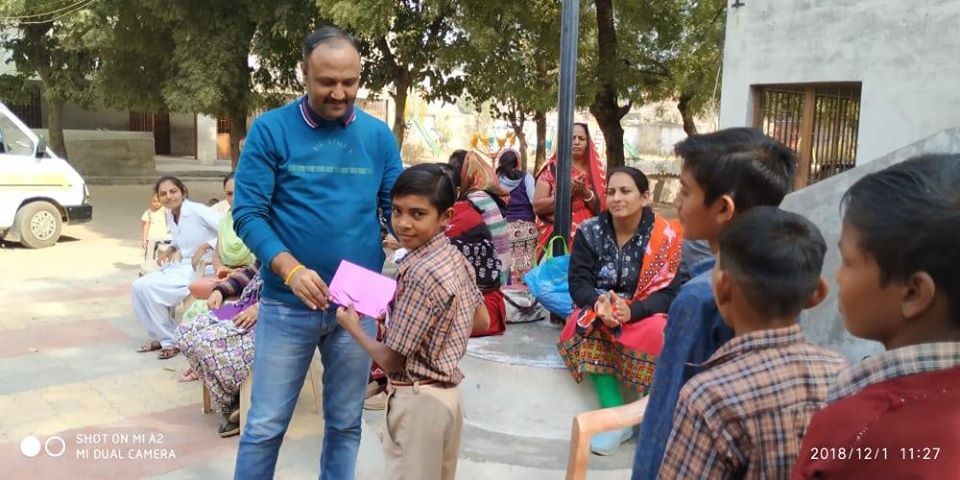OUR IMPACT
Karma Konnect Lifeline: Emergency Ambulance Service for Northern Baksa
Baksa, Bodoland
Access to timely and quality emergency healthcare services in rural and remote regions of India remains a significant challenge. The district of Baksa, part of the Bodoland Territorial Region (BTR) in Assam, is no exception. Residents of villages like Dhanshripur often face life-threatening delays during medical emergencies due to the lack of a structured emergency response system and poor connectivity to healthcare facilities.
To address this critical gap, Karma Konnect, in collaboration with Shri Shiva Shakti Durga Bhawani Public Charitable Trust and with generous support from SEWA Canada, has launched a dedicated emergency ambulance service in Dhanshripur. This initiative aims to provide round-the-clock emergency transportation to ensure that people, especially in Upper and Northern Baksa, can access timely medical attention during critical times.
The primary objective of the Karma Konnect Lifeline project is to bridge the healthcare accessibility gap by ensuring swift and reliable ambulance services in underserved areas of Baksa. The initiative seeks to:
Ensure rapid emergency medical transportation for rural residents.
Reduce fatalities and complications arising from delays in reaching hospitals.
Enhance healthcare delivery in remote parts of Northern Baksa.
Build community awareness around health emergencies and emergency response systems.
Serve as a replicable model for rural healthcare accessibility in other parts of Assam and the Northeast.
1. Geographic and Infrastructure Limitations
The remote terrain and poor road connectivity in Northern Baksa, especially during the monsoon season, make timely ambulance access difficult. Navigating unpaved roads and flood-prone areas can delay emergency response and compromise patient care.
2. Limited Healthcare Infrastructure
The region lacks nearby advanced medical facilities, resulting in long travel times for critical patients. This increases the risk to patients who need urgent medical attention before reaching a hospital.
3. Low Awareness and Initial Resistance
Many people in the area are unfamiliar with ambulance services or prefer traditional healing practices. This lack of awareness can lead to underuse of the service in the early stages.
4. Financial Sustainability
While the project is currently supported by donor funding, long-term operation requires consistent financial resources for fuel, salaries, and maintenance. Relying solely on donations may pose sustainability challenges over time.
5. Staffing and Skill Gaps
Hiring and retaining trained emergency medical staff in rural areas is often difficult. Limited local capacity and fewer incentives make it hard to maintain high-quality service.
6. Operational Downtime and Maintenance
A single ambulance vehicle is highly vulnerable to service disruptions from breakdowns or maintenance delays. Any downtime can severely impact emergency support in the region.
7. Data Collection and Monitoring
Monitoring ambulance performance and patient outcomes is crucial but challenging in low-connectivity, rural settings. Inadequate data can hinder evaluation and improvements.
8. Integration with Government Systems
Working alongside government-run services like 108 ambulances can be slow due to bureaucratic hurdles. Lack of coordination may lead to duplication or service gaps.
Residents of Northern Baksa now have round-the-clock access to emergency ambulance services for the first time.
2. Increased Community Confidence
The availability of emergency transport has strengthened community trust in formal healthcare systems.
3. Strengthened Local Healthcare Linkages
Better coordination with local clinics and referral hospitals has improved the patient transfer process.
4. Empowerment Through Awareness
Awareness campaigns have educated villagers on when and how to use emergency medical services effectively.
5. Capacity Building and Job Creation
The project has created employment by training local youth as ambulance drivers and EMTs.
6. Positive Government and Stakeholder Response
The initiative received strong public support from government representatives and local leaders.
7. Philanthropic Impact and Donor Recognition
SEWA Canada's contribution has showcased the real impact of international philanthropic support in rural healthcare.
8. Foundation for Future Expansion
This successful model sets the stage for scaling ambulance and healthcare outreach services across more parts of Bodoland.
• Child education and livelihood skills (slum evening schools/shelters and aiding low income govt schools) in Gujarat, Telangana, MP and Delhi through utilization of existing govt infrastructure and innovative collaborative models.
• Women Empowerment and legal help, rescue and rehabilitation projects (primarily on Gujarat and UP)
• Rural Empowerment and Citizens Change/Awareness programs (Gujarat, MP, UP, Telangana and Rajasthan).
• We also Executing comprehensive "adopt a village" projects for donors involving well researched sustainable solutions for development
• Training and placement of specially abled
• Refuge rehabilitation projects. (Urban slums)
• Adhoc Medical help and assistance as needed.
To address this critical gap, Karma Konnect, in collaboration with Shri Shiva Shakti Durga Bhawani Public Charitable Trust and with generous support from SEWA Canada, has launched a dedicated emergency ambulance service in Dhanshripur. This initiative aims to provide round-the-clock emergency transportation to ensure that people, especially in Upper and Northern Baksa, can access timely medical attention during critical times.
The primary objective of the Karma Konnect Lifeline project is to bridge the healthcare accessibility gap by ensuring swift and reliable ambulance services in underserved areas of Baksa. The initiative seeks to:
Ensure rapid emergency medical transportation for rural residents.
Reduce fatalities and complications arising from delays in reaching hospitals.
Enhance healthcare delivery in remote parts of Northern Baksa.
Build community awareness around health emergencies and emergency response systems.
Serve as a replicable model for rural healthcare accessibility in other parts of Assam and the Northeast.
Project Challenges
Project Challenges1. Geographic and Infrastructure Limitations
The remote terrain and poor road connectivity in Northern Baksa, especially during the monsoon season, make timely ambulance access difficult. Navigating unpaved roads and flood-prone areas can delay emergency response and compromise patient care.
2. Limited Healthcare Infrastructure
The region lacks nearby advanced medical facilities, resulting in long travel times for critical patients. This increases the risk to patients who need urgent medical attention before reaching a hospital.
3. Low Awareness and Initial Resistance
Many people in the area are unfamiliar with ambulance services or prefer traditional healing practices. This lack of awareness can lead to underuse of the service in the early stages.
4. Financial Sustainability
While the project is currently supported by donor funding, long-term operation requires consistent financial resources for fuel, salaries, and maintenance. Relying solely on donations may pose sustainability challenges over time.
5. Staffing and Skill Gaps
Hiring and retaining trained emergency medical staff in rural areas is often difficult. Limited local capacity and fewer incentives make it hard to maintain high-quality service.
6. Operational Downtime and Maintenance
A single ambulance vehicle is highly vulnerable to service disruptions from breakdowns or maintenance delays. Any downtime can severely impact emergency support in the region.
7. Data Collection and Monitoring
Monitoring ambulance performance and patient outcomes is crucial but challenging in low-connectivity, rural settings. Inadequate data can hinder evaluation and improvements.
8. Integration with Government Systems
Working alongside government-run services like 108 ambulances can be slow due to bureaucratic hurdles. Lack of coordination may lead to duplication or service gaps.
Results & Outcome
1. Enhanced Emergency Response AccessResidents of Northern Baksa now have round-the-clock access to emergency ambulance services for the first time.
2. Increased Community Confidence
The availability of emergency transport has strengthened community trust in formal healthcare systems.
3. Strengthened Local Healthcare Linkages
Better coordination with local clinics and referral hospitals has improved the patient transfer process.
4. Empowerment Through Awareness
Awareness campaigns have educated villagers on when and how to use emergency medical services effectively.
5. Capacity Building and Job Creation
The project has created employment by training local youth as ambulance drivers and EMTs.
6. Positive Government and Stakeholder Response
The initiative received strong public support from government representatives and local leaders.
7. Philanthropic Impact and Donor Recognition
SEWA Canada's contribution has showcased the real impact of international philanthropic support in rural healthcare.
8. Foundation for Future Expansion
This successful model sets the stage for scaling ambulance and healthcare outreach services across more parts of Bodoland.
About Ngo
KarmaKonnect is a non-profit social venture that aims to connect the fragmented ‘giving’ ecosystem by empowering NGOs, donors, volunteers, corporates and government to create impactful social development interventions. KarmaKonnect is an enabler; motivating and empowering individuals and organizations to tap the growing philanthropy landscape by creating, connecting, and/or collaborating for credible projects and causes. The KarmaKonnect team is currently involved in a number of initiatives across the country, through various dedicated volunteers and NGOs. We are primarily working on:• Child education and livelihood skills (slum evening schools/shelters and aiding low income govt schools) in Gujarat, Telangana, MP and Delhi through utilization of existing govt infrastructure and innovative collaborative models.
• Women Empowerment and legal help, rescue and rehabilitation projects (primarily on Gujarat and UP)
• Rural Empowerment and Citizens Change/Awareness programs (Gujarat, MP, UP, Telangana and Rajasthan).
• We also Executing comprehensive "adopt a village" projects for donors involving well researched sustainable solutions for development
• Training and placement of specially abled
• Refuge rehabilitation projects. (Urban slums)
• Adhoc Medical help and assistance as needed.


